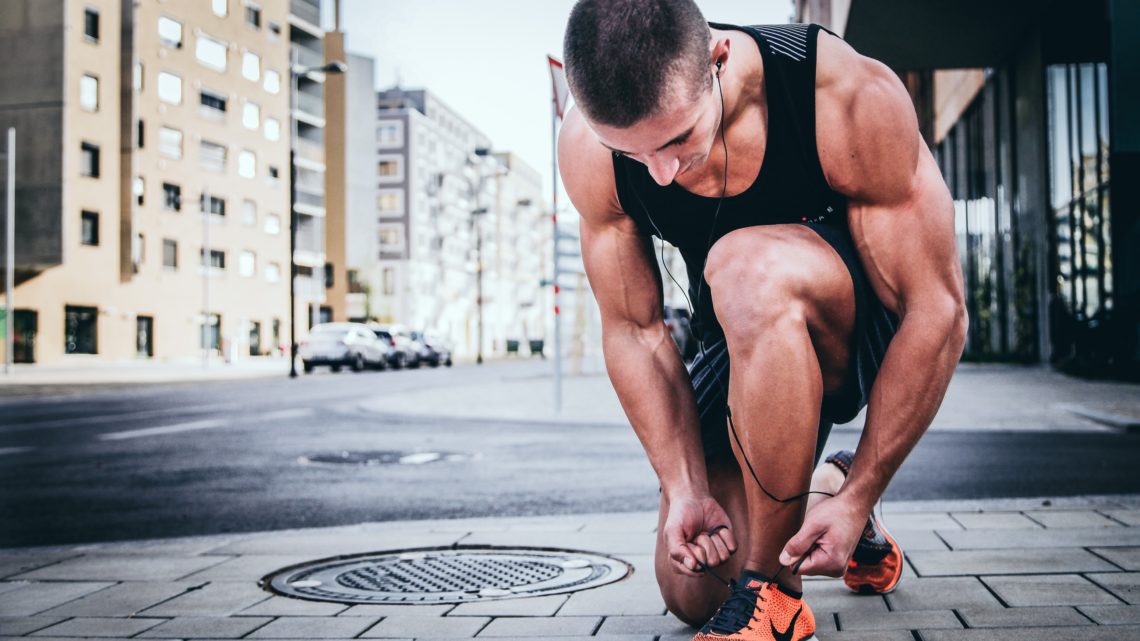Meditation can give us a happier and healthier lifestyle, and so eliminating stress in our lives can assure us a more comfortable way of living. Therefore, why not consider utilizing mindfulness and meditation to boost sport performance?
When it comes to sports, your body and mind are the ones that are needed to be trained to achieve optimal performance. All of your efforts might fritter away, no matter how physically prepared you are if you have a lot of thoughts going on in your head. It may sound crazy how someone can become a great athlete by just sitting with their eyes closed and meditating, but it’s certainly possible!
It’s normal to feel anxious or stressed before the game starts, however, through meditation, it can help an individual get through the anxious barrier standing in the way of success. A fitness spokesperson from Vivotion has explained that if you want to be satisfied with whatever outcome you may face, the ability to have control over your mind is key.
Meditation is not just powerful, but it also beneficial and free, in fact, anyone can do it anywhere! Whether you’re an athlete or not, mindfulness meditation is something that can help you to improve your overall performance. If you want a calmer way of being, meditation is just around the corner, so what are you waiting for?
Some of the top players such as the NBA and NFL stars have been practicing this method. Yes, you’ve read that correctly! Meditation is quite popular among famous athletes.
To answer your question on how to use mindfulness and meditation to boost a sportsman’s performance like you, then keep on reading.
What Is meditation?
As the Maps of India explained, Meditation or “Dhyana” is the ultimate form of concentration in where it allows your intellectual capabilities to emphasise one object and unhooks you from all the worldly things. As the fitness team from Vivotion explained, Dhyana is one of the eight limbs of Yoga, and it is the only way to dive deep into your heart where all your abilities live.
There’s no harm in trying, even though meditation may not be the solution to all of your problems, especially in sports, it is highly likely that this ancient practice will benefit you with the harmony between your mind, body and soul. We can’t see any reasons why you shouldn’t take part!
Another fantastic benefit of Meditation is its potential to control and calm your thoughts and mind at the same time. Through this practice, it eliminates the negativity in your head, your worries, anxiety and everything that hinders you to the state of being happy.
Best athletes are mindful and mindfulness makes the best athletes
A recent study from the Journal of Health Psychology discovered that athletes who practice the mindfulness meditation method were more driven to exercise regularly with their workout routine. Phil Jackson, the Zen master, has become the poster child for this belief after putting mindfulness in athletics into action. He hasn’t only used the mindfulness approaches, but also the Zen philosophy to help his teams, including the Chicago Bulls and LA Lakers, grow mental strength.
According to Mind Body Green, Phil introduced mindfulness in training camps where it became a standardised process for his team to centre and ground themselves. As from his perspective, mindfulness is about aligning with you who are and living from an authentic place. With that being said, mindfulness meditation can harness your enjoyment, presence and it can elevate your overall performance whether you’re a professional athlete or just someone who simply enjoys sports to help de-stress.
How to meditate
We get a lot of questions on how to have an active meditation. First things first, you must find a place where you’d be relaxed, secured, unworried, homely and comfortable enough to ease your mind, body and soul.
Then take a seat and begin to concentrate on your breathing. Next is to focus on one particular object or thought. Let your mind wander and let those feelings and thoughts pass—this will bring you to the present once you have entered into a phase of deep concentration. Also, remind yourself not to suppress your thoughts. You will know that you succeeded if you finish feeling that your mind is eventually at peace.
Why should you consider meditation for athletic performance?
Here are some great benefits of meditation for sport performance:
1. Reduces stress
Stress is something that’s inevitable for most of us, but there is a way where we can fight and reduce our stress, and that’s through meditating. Stress can sometimes get in the way and affect our performances as, for a lot of us, it has become part of our everyday lives. We all know the struggle, and it seems impossible to eliminate it from you completely. That is why it is essential to look for a way on how to best handle stress.
In case you didn’t know, one of the best ways to battle your stress is through meditation as it helps to lessen your stress hormones.
2. Improves sleep patterns
A recent study from Harvard Medical School explained that meditation could help you bring your mind into a calmer state by balancing out the activities in your brain. In case you’re not aware of your unimproved sleeping patterns, did you know that the thing that affects your overall mood, as well as your health, is the lack of sleep?
In that case, meditation can help you improve your sleeping patterns, especially if you’re having a hard time sleeping no matter how much you try. This method of practice will adjust the length and quality of your sleep.
3. Boosts immune system
Aside from being able to have an improved sleeping pattern at night, meditation also ensures that your health is well-maintained. Boosting your immune system is essential, especially when you have an active lifestyle. Failure to do so and you may find yourself end up laying in your bed all day.
4. Increases focus
Things like the noise from the crowd, the competitors and even contemplating past mistakes are few of the things that bother most of the athletes during competitions. Whether these kind of distractions are big or small, it could have negative effects on athletic performance.
With a lack of focus, one might miss the winning shot or wouldn’t make it to the Olympics. But worry no more because you can now learn how to set your focus on the present and ignore all the distractions around you directly through meditation. This will help you to focus on your goals, no matter what life throws at you.
5. Develops self and body awareness
Most of the people, especially fitness enthusiasts, have already overlooked the significance of meditation—and it’s about engaging our minds with our bodies. Blind spots are the thoughts in your mind that can cause your bad mood and makes you feel unmotivated. However, you will probably find that meditation can be a good way of dealing with these thoughts. It can also improve your overall workout performance, and most importantly, it can help build your self-confidence.
6. Easily enter into ‘flow state’
You might be wondering what flow state is. A fitness expert from Vivotion explained what flow state is—it’s the beast mode that you feel when you’re working out. It is as though you can’t feel any weight at all and you feel like you’re floating. According to Biohacking Community, the flow state is the most powerful state of being, and any athletes and fitness junkies desire to reach it.
However, it’s not easy to enter into this type of state, but meditation helps you out by forcing you to control your body and mind. Once you have successfully done it, you can now reach the peak of your performance, and you’re physically and mentally prepared to make the most out of your every workout session!
7. Happiness and satisfaction
Happiness and satisfaction are two of the main amazing benefits you are likely to achieve from meditating. This will lead you to a happier lifestyle, and of course, help you to become a happier individual as this ancient practice enables you to control your thoughts.
Instead of focusing on your negative thoughts and problems, through the help of meditating, you will focus more on your workout. And for the beginners, this will help them not to feel bad about themselves but instead to focus more on achieving their goals.
Here’s how to infuse your training with mindfulness
Practice pausing
According to MBG, the perpetual busyness including our minds has become our modern-day epidemic. Did you know that we have 60,000 to 80,000 thoughts per day and about 70 per cent of those thoughts are negative?
These negative lines of thinking can fuel poor performances in the athletic world, as the website MBG explained. However, we can stay positive and create space to align with intentions if we can fabricate in periods of mental pausing before we go for a run or walk onto the court.
Balanced beliefs
You might think that being mindful is about having zero thoughts. Mindfulness is actually about having the capacity to cultivate awareness of your thought patterns. You can shift your belief system to embrace your true abilities if you begin to excavate entrenched negative stances about who you are as an athlete.
Bring spirit back into the sport
We often lose the true meaning of what competition and sports are all about whenever we are competing. In a culture of “us vs them,” as MBG explained, the ability to play sports is often muddied by the intensity of taking the other person or team down.
But when you learn how to align your athletics with passion, love and friendship, you bring the spirit back into the sport.
I hope you enjoyed this post. Feel free to share this post with your friends and family. After all, sharing is caring!
Author: Isabel Speckman
Isabel Speckman is a North Carolina-based freelance writer and work-from-home mother of three. In her 10 years as a professional writer, she’s worked in proposal management, grant writing, and content creation. Her writing skills may be confirmed independently on vivotion.com.
Personally, she’s passionate about teaching her family how to stay safe, secure and action-ready in the event of a disaster or emergency. Reach her on Facebook and Instagram.













